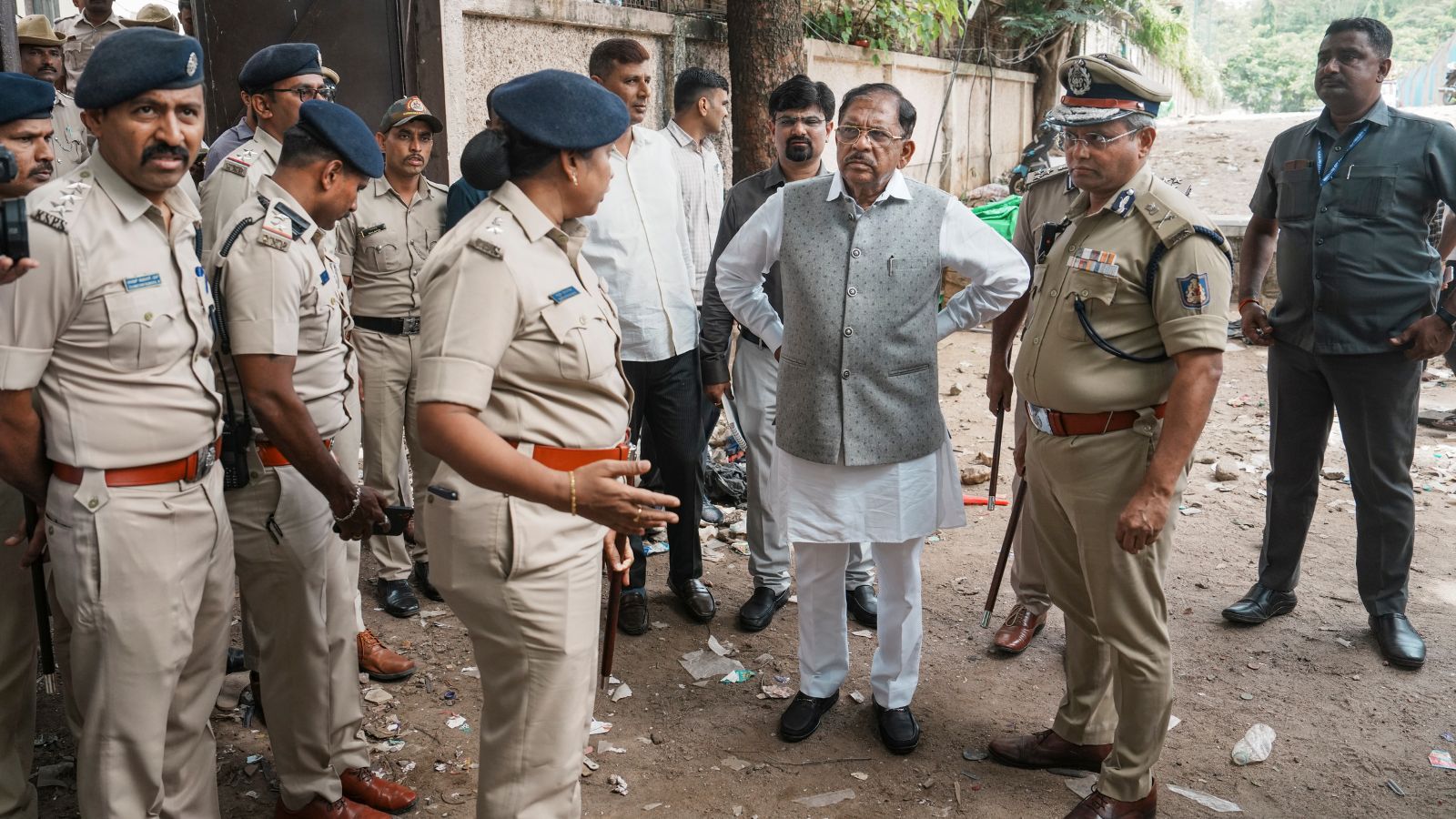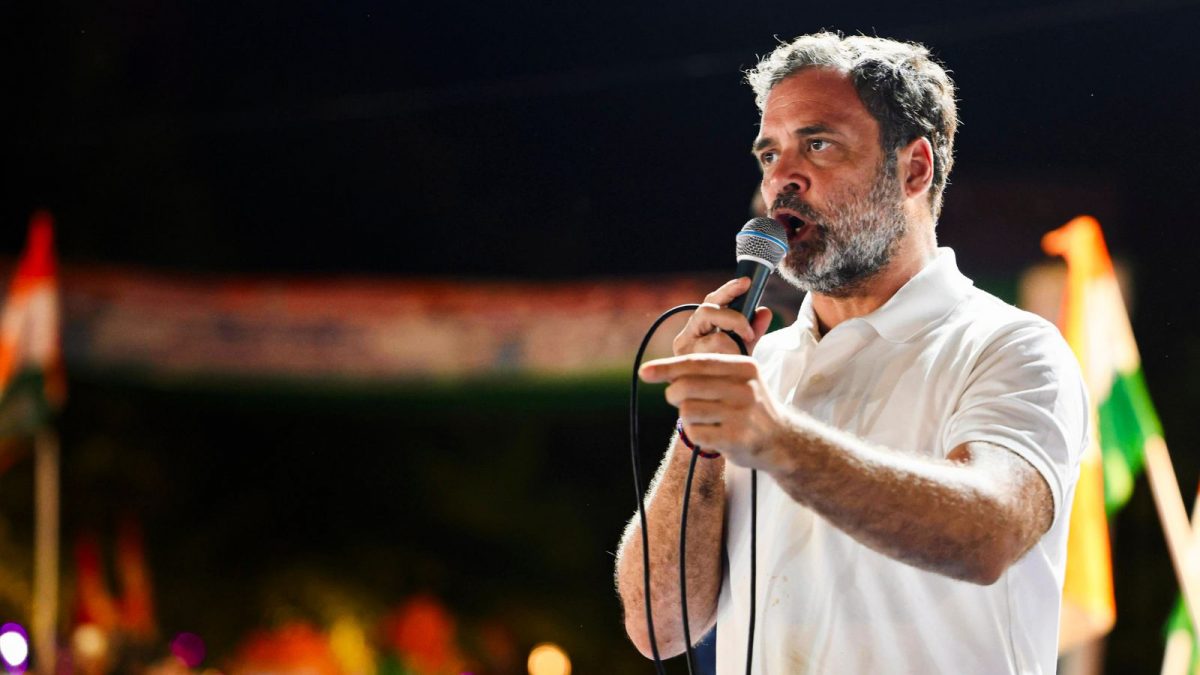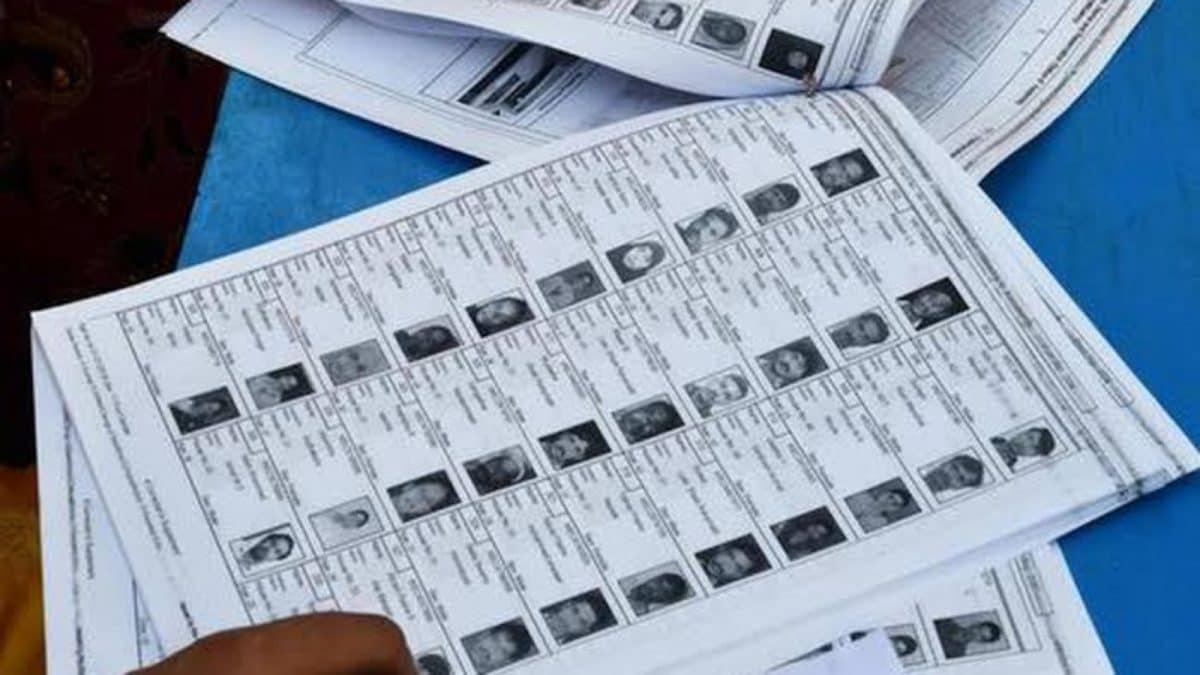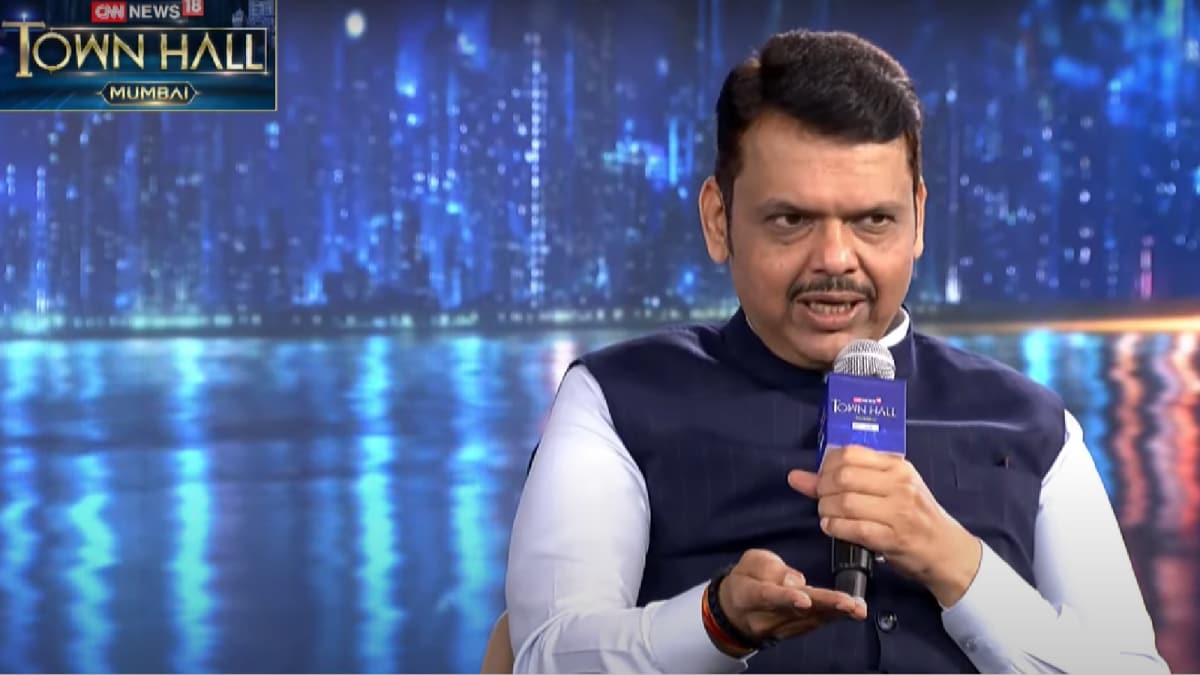Last Updated:
There was stiff opposition from the BJP and JD(S), who argued that the proposed law could curtail protests and affect cultural or religious events

Karnataka home minister G Parameshwara with senior police officials during an inspection after the stampede near the Chinnaswamy Stadium that claimed 11 lives, in Bengaluru. File pic/PTI
The Siddaramaiah government introduced the Karnataka Crowd Control (Managing Crowd at Events and Places of Gathering) Bill, with stringent penal provisions, which it hoped to pass in this assembly session. But the proposed legislation has now been referred to a house committee after facing severe opposition from the BJP and JD(S) on the way it has been framed. The bill was introduced in the wake of public outrage over the stampede two months ago at Chinnaswamy Stadium in Bengaluru following RCB’s IPL victory celebrations.
The June 4 stampede, which claimed 11 innocent lives after lakhs of RCB fans gathered to see the winning team and the trophy brought to Bengaluru after 18 years, raised serious questions on crowd control, event management, organisers’ responsibility, and people’s safety. Both the Karnataka government and the RCB management faced criticism for poor planning, lack of coordination between authorities, and inadequate safety arrangements at the event.
Karnataka home minister Dr G Parameshwara, who is piloting the bill, clarified that family functions or events such as marriages held within private premises are exempted. He said the Chinnaswamy Stadium incident was a “wake-up call” that made the government conclude, after much deliberation, that event organisers must bear responsibility in the event of any mishap.
However, the bill was referred to a house committee following stiff opposition from the BJP and JD(S), who argued that the proposed law could curtail protests and affect cultural or religious events.
The bill stated its main aim as: “It is considered necessary to make a new legislation to—
(i) effectively control the crowd and manage mass gatherings at events and functions; and
(ii) prevent unlawful gatherings.”
The bill defines crowd management as the techniques used to manage lawful assemblies before, during, and after an event. It specifies that anyone intending to organise a function expected to draw a large gathering must obtain prior permission from the jurisdictional authority. If the expected crowd is fewer than 7,000, permission may be granted by the officer in charge of the local police station after due inquiry.
For gatherings between 7,000 and 50,000, the jurisdictional deputy superintendent of police is the competent authority, while events expecting more than 50,000 people require permission from the jurisdictional superintendent or commissioner of police.
The bill further mandates that organisers must apply for permission at least 10 days before the event. Adequate arrangements must be made to ensure the smooth movement of crowds in and around the venue, and organisers are required to execute an indemnity bond of Rs 1 crore.
Defending the need for a regulatory framework, Parameshwara cited the farmers’ protest in Belagavi during the winter session of the legislature, which repeatedly led to lathi charges year after year. “Of late, we have seen crowded events taking place without any legal framework. One example of such an event is during the winter session at Belagavi, farmers were lathi-charged,” said Parameshwara. He raised the question as to what created such circumstances. Where were the regulations or the permissions sought to hold such an event, the home minister questioned.
The penal provisions of this bill have also triggered strong opposition.
The proposed legislation prescribes up to seven years’ imprisonment if an event leads to injuries, and 10 years or life imprisonment in case of fatalities. Causing disturbance or breaching peace during an event will attract three years in jail, along with a Rs 50,000 fine. It also stipulates that anyone disobeying or abetting disobedience of lawful directions issued by a police officer of or above the rank of sub-inspector, instructing dispersal from a gathering, will be liable to a Rs 50,000 fine and one month of community service. Once enacted, these offences will be cognisable, non-bailable, and triable by a judicial magistrate first class.
The opposition, however, raised major concerns and called the bill “draconian”.
Leader of the opposition R Ashoka hit out at the government, alleging that the bill had been drafted only to placate the High Court, which had raised five questions on the tragedy. He argued that nothing new had been added, since “all the provisions already exist”, and claimed the move was merely to file an affidavit before the court.
Ashoka further cautioned that the provisions were ambiguous and risked being used as a political tool against the opposition. He pressed for the bill to be sent to a house committee for wider discussion and insisted on a clear demarcation between commercial and non-commercial events before it could be taken forward.
In the opposition, the BJP and JD(S) leaders asked how large religious gatherings could be managed under such stringent rules. BJP MLA Sunil Karkala questioned how temples could be expected to furnish a Rs 1-crore bond. He also asked who would be held accountable if something went wrong at a government event of such magnitude.
The bill also lays out the approval process: upon receiving a written application from organisers, the authority shall conduct an inquiry into the details of the organisers, the expected crowd size, the purpose of the event, the safety measures proposed, and the no-objection certificates obtained from departments such as fire and emergency services, health and family welfare, public works, and traffic police. The authority will also verify the venue, including the feasibility of crowd control, entry and exit points, and other safety and law-and-order requirements.
A decision on granting or denying permission must be taken within four days of receiving the application. If permission is denied, reasons must be clearly stated and communicated to the organisers in writing or electronically. If granted, the authority will convene security meetings with the organisers and relevant departments, assign roles and responsibilities, and prepare a detailed bandobast or security plan, which must be submitted to superior officers within two days of the meeting.
On the day of the event, the authority and the organisers must ensure strict compliance with the approved bandobast scheme. In case of exigencies or unforeseen developments, the authority reserves the right to cancel permission or halt the ongoing event.
BJP members also argued that during religious gatherings, miscreants might try to create disturbances—as has been witnessed in the past—raising questions about whether temple authorities would then be held accountable.
BJP MLA S Suresh Kumar lashed out at the government, arguing that the bill was drafted only after the High Court pulled it up over the stampede tragedy and demanded standard operating procedures (SoPs).
“At the Jagannath Temple in Puri, 10 to 15 lakh people gather. Even though it may seem disorganised, the crowd is managed in such a way that tragedies are prevented. The June 4 stampede happened because of a hunger for publicity. The provisions this bill speaks of already exist and can be enforced with common sense, even without passing a new law. To bring such legislation only after 11 people lost their lives is deeply unfortunate,” he said.
Having heard the opposition up in arms, the home minister decided to refer the bill to a house committee.

Rohini Swamy, Associate Editor at News18, has been a journalist for nearly two decades in the television and digital space. She covers south India for News18’s digital platform. She has previously worked with t…Read More
Rohini Swamy, Associate Editor at News18, has been a journalist for nearly two decades in the television and digital space. She covers south India for News18’s digital platform. She has previously worked with t… Read More
Read More








